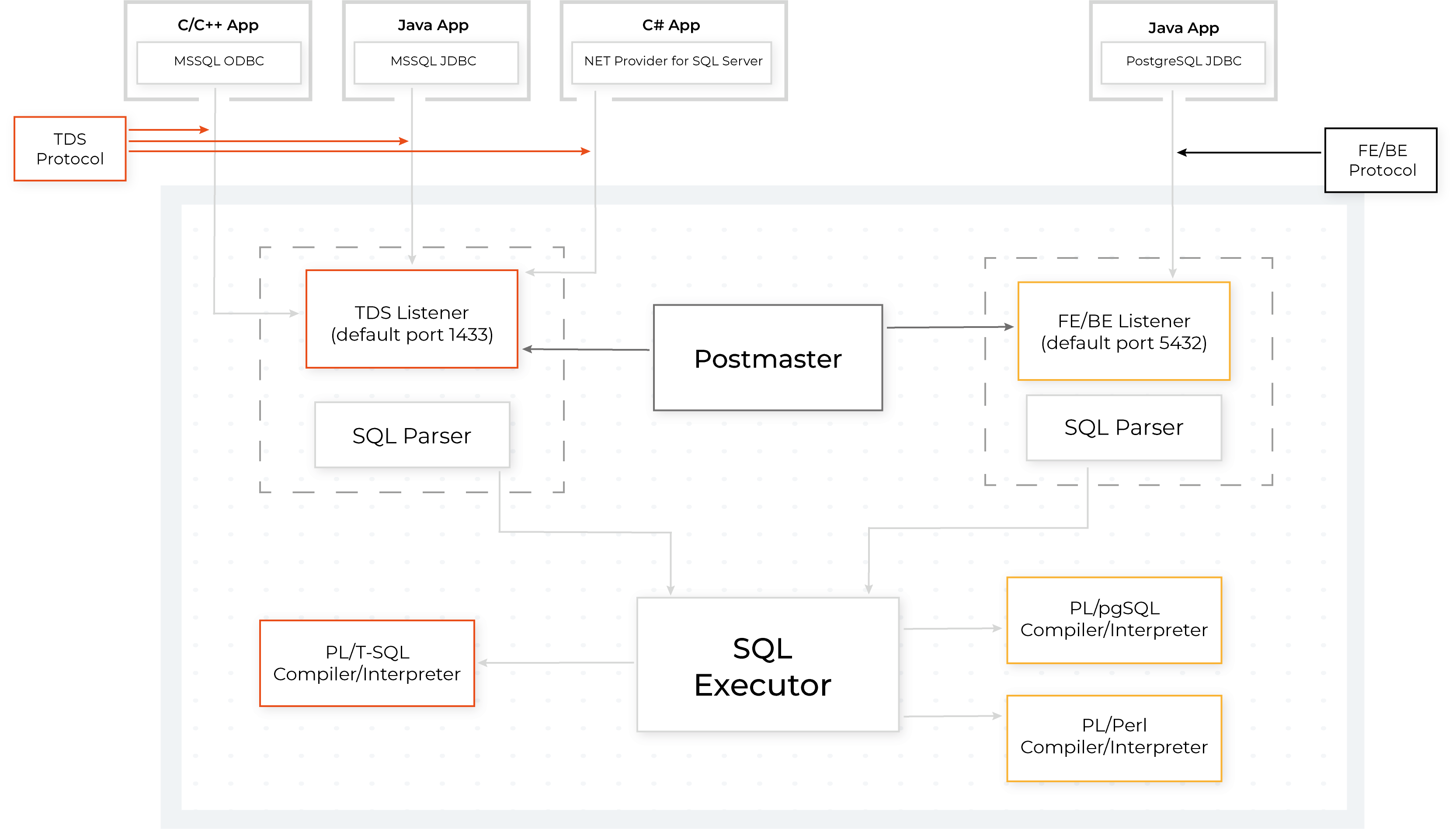Babelfish uses hooks to implement Microsoft SQL Server behavior from a PostgreSQL server. This allows the PostgreSQL server to speak more than one language, making the setup flexible and easy to manage.
A PostgreSQL database that is running Babelfish listens for connections on two (configurable) TCP ports, in two dialects:
- SQL Server dialect (TDS).
- PostgreSQL dialect.
Once the TDS handler has accepted and processed a request coming in on the TDS port, the request is passed on to a PostgreSQL backend. The backend parses the request using a custom parser, modified to understand SQL Server dialect.

There are no significant changes to the PostgreSQL optimizer or the PostgreSQL executor.
The PostgreSQL core that is distributed with Babelfish has been modified to prepare for trigger processing, transaction handling, and other behaviors that are different in SQL Server. This means that the database server is not 100% identical to a community distribution of PostgreSQL.
Databases vs. schemas
PostgreSQL supports the following logical structure of objects:
- Instance: a running PostgreSQL server (the PostgreSQL community documentation calls this a cluster)
- Database: what a user connects to
- Schema: a logical grouping of tables and other objects inside a database
- Table: where the data is stored
SQL Server supports the same objects.
In contrast to PostgreSQL, SQL Server allows you to query tables that reside in another database, or join tables in different databases. To enable cross-database joins, you should use the multi-db deployment mode in Babelfish.
In multi-db mode, when you call the USE command to switch from one database to the other, you remain connected to the same PostgreSQL database, but switch to a different schema. Understanding this relationship may help you if you plan to query the same table using both protocols.
To learn more about single and multi-database deployments, see the documentation, which deals with this topic in more detail.
Babelfish extensions
Babelfish uses extensions to make PostgreSQL compatible with SQL Server:
babelfishpg_common: SQL Server data typesbabelfishpg_money: Fixed precision numeric typebabelfishpg_tds: TDS protocol extensionbabelfishpg_tsql: T-SQL extension
Here is a more detailed description of these extensions:
babelfishpg_common: SQL Server data types
Data types are often really similar but not necessarily 100% identical. Therefore, the Babelfish development team provides specific data types which mimic SQL Server behavior.
babelfishpg_money: Money data type
The babelfishpg_money extension implements the money data type.
babelfishpg_tds: TDS protocol extension
This extension implements the TDS client-server protocol. You need to modify the shared_preload_libraries parameter (in the postgresql.conf file) to ensure that the extension is loaded at server startup time.
babelfishpg_tsql: T-SQL extension
This extension provides the code needed for to handle T-SQL syntax. It contains functions, system views and other infrastructure required to implement SQL Server functionality.